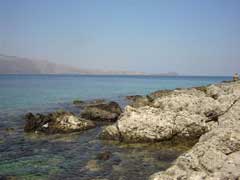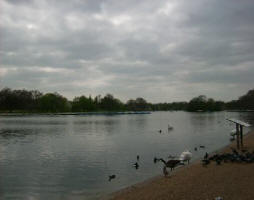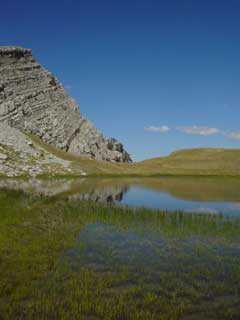 Arab countries study the benefits of joining the UNECE Water Convention
Arab countries study the benefits of joining the UNECE Water Convention
The United Nations Economic Commission for Europe (UNECE) Convention on the Protection and Use of Transboundary Watercourses and International Lakes (Water Convention) can be a source of inspiration for progress in the management of shared surface waters and groundwaters in the Arab region and neighbouring States.
Accession to the Water Convention could reinforce cooperation with riparian countries and lead to the equitable utilization of shared waters. Such potential benefits were acknowledged by participants in a workshop that gathered representatives of 12 Arab States on 11 and 12 June 2014 in Tunis.
Key aspects of different legal frameworks for cooperation on shared waters were discussed, in particular the opportunity that the globalization of the UNECE Water Convention represents for the Arab region.
Countries such as Algeria, Egypt, Iraq, Lebanon, Morocco, Sudan and Tunisia, as well as Palestine, expressed their interest in further studying the Water Convention and its applicability in their particular settings. Iraq and Tunisia reconfirmed their willingness to join the Convention.
The workshop was held under the patronage of the Minister of Agriculture of Tunisia, Mr. Lasaad Lachaal. UNECE, the Center of Water Studies and Arab Water Security of the League of Arab States and the Global Water Partnership Mediterranean, in collaboration with the Economic and Social Commission for Western Asia, cooperated to organize this landmark workshop. The workshop was held at the request of the Arab Ministerial Water Council, operating within the framework of the League of Arab States, as expressed in a resolution adopted in June 2013.
In the Arab region, more than two thirds of water resources, both surface waters and groundwaters, are shared by countries within the region or with neighbouring countries from outside the region. With growing anthropogenic and climatic pressures on these scarce resources, cooperation is crucial to ensure regional peace, stability and development. Participants highlighted the specificities of the Arab region, such as water scarcity and high dependence on groundwaters, which would need more attention in the future work to be implemented under the Convention.
At the workshop, international experts from Parties to the Convention (France and Lithuania) shared their experiences in implementing the Convention. Good practices for cooperation on shared waters were also presented, for example by the Sahara and Sahel Observatory on the management of the North-Western Sahara Aquifer System.
| Contact information | n/a |
|---|---|
| News type | Inbrief |
| File link |
http://www.unece.org/env/water/workshop_arab_countries_2014.html |
| Source of information | The United Nations Economic Commission for Europe (UNECE) |
| Keyword(s) | Water Convention, shared waters |
| Subject(s) | HYDRAULICS - HYDROLOGY , NATURAL MEDIUM , POLICY-WATER POLICY AND WATER MANAGEMENT , RIGHT |
| Relation | http://www.semide.net/topics/swrm |
| Geographical coverage | Algeria, Egypt, Iraq, Lebanon, Morocco, Sudan, Tunisia, Palestine, France, Lithuania |
| News date | 19/06/2014 |
| Working language(s) | ENGLISH |
 you are not logged in
you are not logged in





